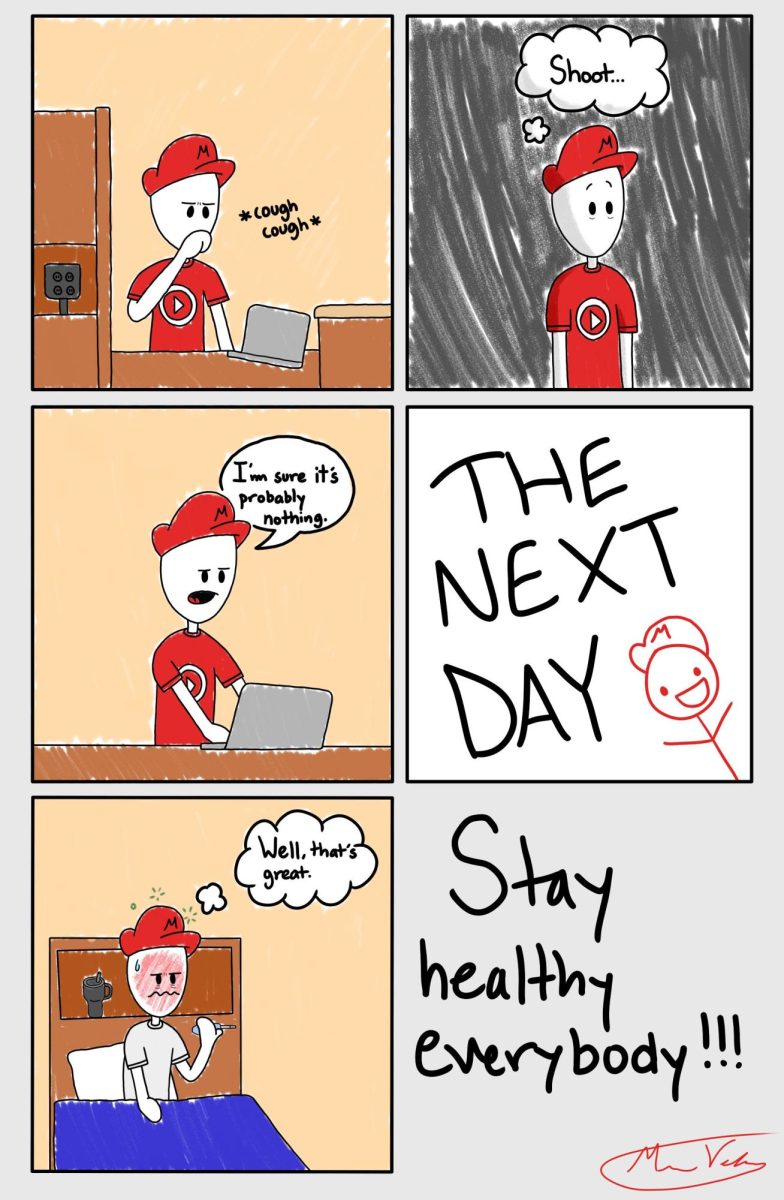I remember Dr. Pettit said in chapel last semester that the student body is the most thankful he has ever seen at the university because of COVID-19. I thought about his announcement, and I realized I myself had been more joyful and content than before. With no breaks, social distancing and limited food options, the students have appreciated the efforts more.
Around this time in March last year, the student body was sent home to finish the semester online. Being present at school for almost a year has boosted the joy of the student body. After the announcement, I noticed more people saying “thank you” in DC lines, more people smiling when passing each other on the sidewalks, fewer people getting to-go boxes and instead making time to get meals with people. Faculty and students were willing to work around the inconveniences of COVID-19 to be able to come together. For the fall festival party, people were willing to walk to each location in smaller groups so the event would be possible.
Thankfulness is a mark of being a part of God’s family. In the end days before Christ returns, people will become more wicked. The symptoms of that wickedness are evident in 2 Timothy 3:1-5, “This know also, that in the last days perilous times shall come. For men shall be lovers of their own selves, covetous, boasters, proud, blasphemers, disobedient to parents, unthankful, unholy, without natural affection, trucebreakers, false accusers, incontinent, fierce, despisers of those that are good, traitors, heady, highminded, lovers of pleasures more than lovers of God; having a form of godliness, but denying the power thereof: from such turn away.”
Throughout history people have forgotten what God has done and it caused them to sin. The Israelites worshipped other gods because they forgot about God’s deliverance. Jonah forgot God had forgiven him, so he refused to extend an offer of forgiveness to the Ninevites. Elijah forgot to be thankful for God’s protection from the wicked Queen Jezebel, so he fell into despair. Peter forgot to be thankful for God’s protection while walking on the water, so he depended on himself and sunk.
For Christians, thankfulness is not optional, but is a command. Trials often make Christians more thankful. Psalm 30:11 says, “Thou hast turned for me my mourning into dancing: thou hast put off my sackcloth, and girded me with gladness.”
I was standing in line to get food and as I grabbed my plate, I said “thank you” rather nonchalantly. The DC worker on the other side of the counter explained she had never met so many thankful people in one place.
Thankfulness is a quality worth complimenting in others. Dr. Pettit said people should compliment others on their imitative qualities. In other words, admiring qualities in people that last rather than temporary externals. Thankfulness should be a reason for choosing a friend. If 2 Timothy says, “from such turn away,” then should not the goal be to befriend someone who has the opposite of these qualities—lovers of God, humble, loving and thankful?
While blessings are still fresh in the mind, keeping a journal of 2020 blessings could be a memorial. When other trials come, these memorials will remind that God can deliver again.
The picture of these monuments can be seen whenever Nehemiah instructed Israel to rebuild the wall in order to protect themselves from the enemy. The wall was built in record time because every man built the wall in front of his own house.
Let’s build up stones of remembrance so we have a wall of thankfulness to look on remembrance and faith. How many stones of answered prayer can you add to the wall today? The protection of our walls is measured in how many stones we can add. Let’s keep building that wall!























































